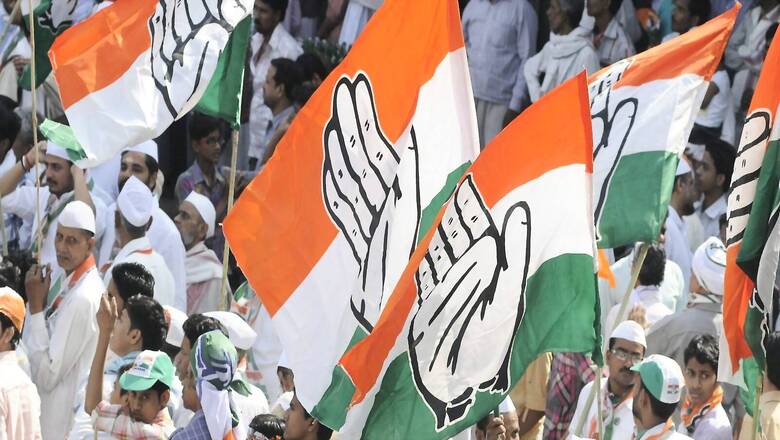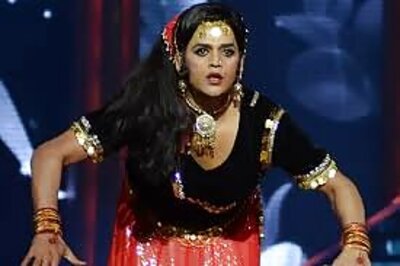
views
Public discourse about the state of democracy in India has taken a vicious and ugly turn. Smarting from two successive back-to-back defeats at the hands of the Bharatiya Janata Party (BJP), its opponents, political and ideological, namely the woke liberal gang, are indulging in a desperate and dangerous game of scaremongering. Invoking liberal norms, referencing sophisticated terms like majoritarianism, and provocatively characterising minorities as second-class citizens, these naysayers are falsely painting a picture of the country’s terminal descent into authoritarianism.
Suhas Palshikar’s article, BJP’s re-election in 2024 may consolidate an idea of India that is inherently un-democratic (I.E Jan 6, 2023), is a template of this vilification campaign that throws logic, facts and good sense to the winds; it militates against the very principles of democracy that it claims to uphold.
Democracy cannot be taken for granted. It is not an impregnable institution whose contours cannot be breached or its foundation shaken. In fact, democracy is more fluid than solid; its equilibrium dependent on a delicate interplay among its stakeholders, specifically the winners and losers of an election. The cardinal rule is that the magnanimity of the winner of an election must match the grace and maturity of the loser; a willingness on the part of the loser to gracefully accept a personally untenable verdict and understand that democracy does not mean my way or the highway. An inability to comprehend this important caveat is driving these wild rants about the state of democracy.
At the outset, let us be clear about one thing. It is undeniable that the BJP won the last two elections fair and square; there were no instances of electoral rigging that can take away from the BJP’s decisive victory. Unable to challenge the electoral dominance of the BJP, its opponents have resorted to slandering its ideology and attacking its mode of governance.
Suhas Palshikar writes, “This is where we come back to the idea of a dominant party system. It is not so much about electoral expansion as it is about the ability of the dominant party to determine what will be the ideological contours of political competition. Today, the BJP is poised to force not just the style and language of politics but also the substance of politics onto its opponents and once that exercise is complete, the transformation of India from an imagined constitutional democracy to a majoritarian regime will be complete.”
An interesting observation, but not completely valid. Ironically, Palshikar’s gripe that the “BJP is poised to force not just the style and language of politics but also the substance of politics onto its opponents” is in fact the very essence of democracy; it cannot be perceived as a corruption of the process. Democracy provides an equal platform for warring ideologies to compete and succeed. For more than 50 years, the Congress party’s principles of secularism and socialism held sway. Communism fell by the wayside, its path of violence and coercion failing to find favor with Indians. If today, the BJP has succeeded in shifting the public debate to approximate its ideals, it cannot be seen as a negative. It must be celebrated as the success of democracy, for the BJP has achieved this outcome by legitimate means via the ballot box and public persuasion in lieu of violence.
Pushing his hypothesis further, Palshikar extrapolates on the topic of majoritarianism, he contends, “The current regime is inherently antagonistic to the liberal norm. The liberal norm and majoritarianism are at odds and the latter is at the heart of the current regime’s ideological project. Today, the acceptability of majoritarianism is linked to the nature of religious identity…These developments have implications for how the project of evolving a political community necessary for democracy is undermined…through the onslaught of public display of religiosity, Hindus are persuaded to become more Hindu in a superficial sense…the plural nature of Hinduism is pushed aside in favour of a more pan-Indian, homogenised idea of Hinduism.”
For one democracy cannot be held hostage by liberal norms alone; space for all ideologies is essential. Assertion of India’s Hindu identity and a Hindu renaissance that seeks greater political coherence amongst Hindus cannot be perceived as antagonist to other religious communities or as majoritarianism. It is perfectly acceptable within the framework of a democracy. Moreover, this resurgence was long overdue, necessitated by grinding historical inequities and the suffocating pseudo-secularism of earlier years that had blunted the Hindu identity.
Next, Palshikar adds the element of ‘second-class citizenry’ to this toxic theory. He pontificates, “…Muslims are reminded of being Muslims rather than Indians. In a sense, a conservative Muslim-ness is forced upon the community through its isolation and now its conversion into second-class citizenry.”
A ‘second class citizen’ is an incendiary term and needs to be used carefully, fully understanding its ramifications. It is profoundly disturbing to see a public intellectual like Palshikar, a political scientist and an academic, use this epithet flippantly.
How exactly does one define a ‘second-class citizen’?
The Hindus and Sikhs of Pakistan serve as a prototype. Article 2 of Pakistan’s Constitution states “Islam will be the state religion” which automatically relegates Hindus, Sikhs and Christians to second-class status. Till 2002, Hindus and Sikhs did not have equal voting rights and till 2018, their marriages were not officially recognized, making Hindu and Sikh women fair game for abduction and conversion. Hindus and Sikhs are not freely allowed to build temples and gurudwaras. Even in death, Hindus and Sikhs are not spared of ignominy; the lack of adequate crematoriums forces them to, at times, bury their dead in violation of their religious beliefs. Add to all this forced abduction, forced conversion and forced marriages to Muslims, of their daughters, and you have the complete definition of a second-class citizen.
So, despite the occasional noise on the street, minorities in India do not fit this bill and cannot be classified as second-class citizens. Minorities have equal voting rights, attend the same schools and colleges, have the same ration cards, have access to the same impartial electronic college selection exams, and can build and pray in their own mosques and churches.
Coming to the issue of eroding government institutions, Palshikar writes, “During its second term, the current regime has made concerted efforts to undermine constitutional democracy…bodies like the judiciary or the Election Commission have been tamed…the bureaucracy and investigating agencies have become partners of the political establishment in the crime against democracy.”
Let us look at some facts to ascertain the validity of this accusation. During the eight-year period of the Modi regime (2014 to 2022), there was certainly an increase in the number of Enforcement Directorate (ED) raids–3010 vs a mere 112 during the 10-year tenure of the UPA from 2004 to 2014. However, these increased raids resulted in 23 convictions under the Prevention of Money Laundering Act (PMLA) and attached proceeds of crime worth Rs 99,356 crore; in contrast, to no convictions and a paltry collection of Rs 5,346 crore during the UPA days.
Do these contrasting figures reflect the deliberate tardiness of the UPA versus the enhanced commitment of the BJP to ferreting out crime is the question to be answered, instead of seeing it as a witch hunt.
Moreover, merely claiming that the judiciary and the election commission have been ‘tamed’ or compromised does not make them so. Partisan judgements cannot be used as an index of judicial infallibility. Decisions in Disha Ravi and Mohammed Zubair case point to independence in the judiciary that remains untouched.
India remains a vibrant democracy. Our electoral system continues to be fair and efficient; our democratic institutions are carrying out their duties diligently and the talk of majoritarianism is merely noise on the street, sans any tangible impact on the human rights of minorities. Let not the mobs on the streets or the nattering nabobs of negativism perched on top of their ivory towers tell us otherwise.
The writer is a US-based author. Views expressed are personal.
Read all the Latest Opinions here


















Comments
0 comment